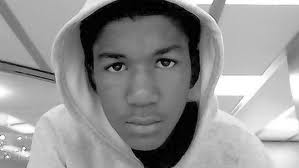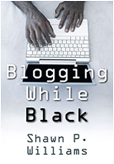Text from Shawn Williams Keynote Address to Society of Professional Journalist Conference
Society of Professional Journalists – Region 8 Luncheon
March 23, 2012, Hilton Hotel Downtown Ft. Worth
Shawn P. Williams
 I would like to thank the Society of Professional Journalists for the opportunity to speak with you today. It was my intention to discuss with you some of my thoughts on the state of journalism, as I did when I shared with the local group last year.
I would like to thank the Society of Professional Journalists for the opportunity to speak with you today. It was my intention to discuss with you some of my thoughts on the state of journalism, as I did when I shared with the local group last year.
As a member of the Advisory Board at the Poynter Institute I’ve had the opportunity to see so much of what’s working and not working in news.
To look at various models that individuals and companies are using to try to generate revenue in these times of struggle and tumult. I wanted to encourage our young journalists to understand that though they are looking towards a media/news industry whose business model is under duress, the content they produce is becoming more and more valuable everyday.
I wanted to share with you how Google Panda, a change to Google’s search algorithm, is rewarding quality journalism and penalizing sites with poor quality content. I was gonna tell a few jokes. And I also planned to give subtle hints about how my book Blogging While Black is available on Amazon.com.
Believe me it would have been a great talk. And since I’m working my way up the ranks, maybe the national organization will invite me to share my thoughts on these topics at the national meeting in Ft. Lauderdale.
But I would be remiss if I did not spend the few minutes you’ve been gracious enough to give me today to share a few thoughts on the situation with Trayvon Martin, the 17 year old African-American male who was shot down after a trip to the convenience store.
You know when I started DallasSouthBlog.com in 2006, I thought maybe I would be able to help portray positive images of African-Americans to combat the negative images we often saw (and still see for that matter) on television.
My hope was that we might reach a point where we was a community in Dallas and we as a nation would not automatically judge a young black man by the fact that he’s wearing a hoodie.
 I must respectfully disagree with a journalist who I once greatly respected. Geraldo Rivera said on Friday he would “bet money” that Trayvon Martin wouldn’t have been fatally shot if he had not been wearing a hoodie. Geraldo went on to say that When you see a black or Latino youngster, particularly on the street, you walk to the other side of the street. You try to avoid the confrontation, Geraldo says.
I must respectfully disagree with a journalist who I once greatly respected. Geraldo Rivera said on Friday he would “bet money” that Trayvon Martin wouldn’t have been fatally shot if he had not been wearing a hoodie. Geraldo went on to say that When you see a black or Latino youngster, particularly on the street, you walk to the other side of the street. You try to avoid the confrontation, Geraldo says.
Back in 2006, there were very few outlets where African-Americans could go to express their outrage at comments like Geraldo’s or injustices like what we’ve seen over the last few weeks with Trayvon Martin, where a neighborhood patrolman cold pull the trigger on kid walking down the street and hide behind a Stand Your Ground Law.
Let me take a second to say from what I heard on the 911 tapes and it sounded like Mr. Zimmerman was not standing his ground, he was staking his ground. The plight of Trayvon’s parents have been greatly helped by social media.
It serves as a reminder that African-Americans were the first to use the internet and social media as an effective tool for social change.
The reason why I wrote my book Blogging While Black was because I wanted to make sure the history of the Black Blogging Movement was not forgotten. Before the Tea Party, Before the Arab Spring, before Occupy Wall Street, African-Americans used the internet to express generations of frustration with the media.
The case of a 14 year old black female in Paris, Texas became the tipping point. When Shaquanda Cotton was reported to have received a 7 year sentence for pushing down a hall monitor at her high school, the story spread across the internet like wildfire. To be fair, the actual sentence was one to seven years, but it was the possibility of serving 7 years for the incident that got everyone’s attention.
Howard Witt of the Chicago Tribune brought the story to national prominence in a March 12 2007 article. I’d actually heard about the story prior to Witt’s article from a cousin who referred me to the African American News and Issues newspaper. But it was Witt’s article that brought the incident to national prominence.
The reason I feel the need to revisit March 2007 is because I think it’s easy to forget just how much technology has changed the way we interact, how we report, and how we advocate for the things we believe in. Shaquanda Cotton’s plight was an aha moment, not just for black bloggers, but for African-Americans in general. Many of us realized that there were others our there who had the same feeling of frustration with how things were going.
The problems relating to race faced in Dallas, were similar to those in Philadelphia and Los Angeles and in Cinncinnati. African-Americans across the country used the internet to express their frustration by blogging and commenting and emailing about the events in my hometown.
The Cotton case became a focal point, drawing a line in the sand saying something’s gotta change. And while the justice system was the main focus, the media came under scrutiny as well.
Why was it the Chicago Tribune that brought this story to national prominence? Why not the Dallas Morning News? In the weeks following his initial article, Witt was the first to write about the Black Blogosphere as a collective, chronicling the way African Americans were pushing the story and putting pressure on the juvenile justice system.
As Witt gave updates he actually started reaching out to Black Bloggers to help get his stories a broader audience. The night before his articles hit the front page of the Chicago Tribune, Witt had already emailed a link to the story out to bloggers who were discussing and commenting on them before print readers sat down at the table with their morning cup of Joe.
It doesn’t seem that out of the ordinary today for a newspaper man or woman to use bloggers as a source. To use bloggers as a mean to help promote their stories. But in 2007 this was far outside of mainstream behavior.
Witt used the same formula after writing an article about the Jena 6 in May of 2008. Black bloggers began to weigh in on the plight of 6 young men who had be jailed after a school fight fueled by racial unrest in the small town. One of the young men was charged with second degree attempted murder.
For weeks and months the story was kept alive by Black Bloggers and after a day of Blogging for Justice in late August the mainstream media began to take note. News organizations asked themselves again, why was The Chicago Tribune the only major paper outside of Louisiana to tell this story. The Guardian was reporting about Jena before many newspapers stateside.
After the election of President Obama in 2008, the Black Blogosphere saw a steep decline. It was as if everyone believed the myth that electing a Black President had solved America’s race problems.
And while it was more difficult to get issues of race heard after the election of President Obama, the real difficulty for bloggers came with the new tools of social media. When we were writing about Paris, Texas, Facebook was still most popular on college campuses. And Twitter was celebrating it’s first birthday.
Once Facebook and Twitter became everyday tools for everyday people, Black Blogging lost it’s luster.
Conversations that once took place solely on blogs like Electronic Village and Field Negro and Black and Missing but Not Forgotten were now being held on millions of Facebook walls across the world.
It wasn’t long before many of these sites that had played such a vital role in over the previous two years began to fade into the background. We didn’t Adapt to the new technologies, at least as tools for activism.
 But over the last few weeks, we’ve seen a renewal of the spirit from the Black Blogger Movement. As Facebook and Twitter and You Tube spread the story of 17 year old Trayvon Martin, shot down in cold blood holding only a bag of skittles and a can of ice tea.
But over the last few weeks, we’ve seen a renewal of the spirit from the Black Blogger Movement. As Facebook and Twitter and You Tube spread the story of 17 year old Trayvon Martin, shot down in cold blood holding only a bag of skittles and a can of ice tea.
While I have yet to write about the story, I’ve shared updates on my Facebook wall, posted a photo of LeBron James and the Miami Heat wearing hoodies on my Tumblr, and got in a Twitter war of words on the topic with another local writer.
We’ve seen million hoodie marches in New York and Philadelphia. Yesterday Paul Quinn College honored the slain young man with Trayvon Martin Day. And on Monday UT Arlington students will host a Justice for Trayvon Martin Hoodie March.
It was almost a year from the time that Shaquanda Cotton was sentenced until Howard Witt wrote his article that stirred the Black Web Roots. It was nine months between the fight in Jena and the Jena March. It’s been less than a month since Trayvon Martin was killed by a neighborhood watch patrolman who was told to quit following him by a 911 dispatcher.
I think the media landscape is better than it was 6 years ago. There are still negative portrayals of African-Americans to be sure. And missing black women still don’t get the airtime as women of other ethnicities.
But as much as anything else, I believe the mainstream media has come to realize some of their problems. The institutional biases that still exist from the days of segregation and Jim Crow. The inherent biases that we all bring to stories we write and editorialize about. And the lack of diversity in newsrooms that has only gotten worse with the recent media turmoil and upheaval. Though the effort to fix the problems are slow, I think acknowledging the issues are a major step.
Let me say that we still see journalists and reports making the same types of judgements as the trigger happy patrolman.
Maybe it’s not a hoodie that leads to a rush to judgement, but maybe it’s the preacher in a 5 button suit. Maybe it’s a council person who splits his or her verbs. Maybe it’s the community leader with a think accent.
While pen to paper or fingers to keyboard may not inflict a fatal wound, character assassinations have real consequences that too few reporters acknowledge these days. Like it or not, our biases and judgements affect our reporting, and too often people of color are disproportionately affected. This can be evidenced by the reporter who flippantly calls a Black Police chief a nasty, vile name or by the perpetuation of the Angry Black Woman meme against the first lady.
Yesterday my son and daughter and I were at McDonald’s. We ordered pancakes and I sent Isaiah to the counter to get a couple of packets of butter. I noticed he was wearing a hoodie, with the hood pulled up on his head. I saw a 10 year old boy who loves to have fun, play with his sister, a gifted student who I wish would study just a little bit harder in school. Trayvon’s been described as being a fun loving kid who loved sports, Avatar The Last Airbender, and still liked to go to Chuck E. Cheeses. Those same things could be said about my son, a probably the same for many of you in the room who have kids.
As I looked at my son in McDonalds, I realized someone could see him with his hoodie on and let their preconceived notions and bias influence how they treat him. I thought about how devastated Trayvon’s parents must be, as they ask only that the man who shot and killed their son be arrested and let the justice system decide his fate.
If any of you are ever asked to write a story about my son, about his greatest successes or the inevitable failures that we all must experience in life. All I ask is that you be fair. Acknowledge the biases that you bring to the story. Acknowledge the opposing views that may be held by people who do not look like you, who may have had different experiences, whose opinions you may not understand. I ask that you don’t spin the story to sell more paper or entice more clicks.
That you don’t see him as an opportunity for gotcha journalism, passed off as investigative reporting. Though the business of journalism is hurting, the need for the true principles represented by the profession have never been more valuable. And the individuals who choose to use the news to make a difference are also more valuable than ever.
Whether it’s for a newspaper, or a website or even a public relations agency, all I ask, is that you be true to yourself, and true to those who need you most. Someone like my son Isaiah or like soemone like Trayvon Martin. Thank you so much for the opportunity, and thank you for listening.





Blame the Hoodie?….. walking while black with a hoodie, punishable by death? GIVE ME A BREAK. It was raining …. the kid was running …..and being stalked …….and ….SORRY, but we don’t ALL use Totes umbrellas when going to the corner grocery store for a snack. Nor should we risk losing our very lives while doing so! Mr. Rivera: you should be ashamed of your inane, insensitive comments about Trayvon, and your attempts to create “excuses” for the inexcusable actions of judge-jury-and-executioner George Zimmerman (and those that would imitate him). We are becoming a society that seeks and sees threats under every rock; a frightened society that sees danger with every “other” that is not just like us; a manipulated society with control-freaks running rampant (whether politicians or mayors or police chiefs or individuals). Power-hungry people that are only too eager to take advantage of our fears; that are only too willing to get away with anything and everything that they can, as they deprive us of our our liberty (and sometimes our lives)…..all in the name of defending it. What a shell game. But were it only a game. For it includes the worst provisions of the Patriot Act, the police spying on innocent people, “papers-please” and stop&frisk gone wild, the “right” to indefinitely detain Americans without trial, and out-of-control homicidal vigilantes such as we have tragically seen here. It’s a serious, slippery slope… one that ultimately leads to a police state/Orwellian mentality that is more typical of places such as China or Cuba – NOT the America that I know and love. We USED to stand proud and free, and contrasted our open society to such sorry places. Now we imitate them. Our country is better than this. Our values are better than this. WE are better than this. Don’t blame the hoodie……blame what we are becoming, and allowing, and doing as a society. As Shakespeare once said: the fault is not in our stars, but in ourselves: For we have come to accept things that should NEVER be accepted by a freedom-loving people. It’s time… it’s way past time, to reverse course.